|
Formalistically ascribes the visual comedy reminiscent of Tati, Elia Suleiman's It Must Be Heaven is a cunning portrait of a globally-connected world, one which simultaneously embraces and subverts cultural stereotypes in an attempt to express and normalize our shared humanity which supersedes such differences. The director himself is the principal character and the de factor vessel across this exploration; A Palestinian man, the film provokes an evocation of identity and diaspora related to home which doesn't always work, yet it features a host of enticing visual comedy constructions which titillate regardless if they don't always achieve the director's introspective ambitions. The urban spaces of New York and Paris in particular are viewed through a foreign lens, which in itself offers some juicy comedic moments, but the film's more intellectual aims don't entirely work due to much of its quasi-vignette formal structure feeling a bit too facile to elicit the film's intended intellectual aims. It's almost as if Suleiman himself realizes this, as the film becomes less nuanced and more didactic in its philosophical underpinnings in its last few scenes of the film.
0 Comments
Arguably Kaufman's most inaccessible work, I'm Thinking of Ending Things doesn't always work, but it offers substantive moments, both emotionally and intellectually, as the filmmaker attempts to purvey the complexities of memory and perception, delivering an evocation on living in which the interiority of the human consciousness is displayed through a cold, constricting cinematic grammar that elucidates the underlying pain, sadness, and isolation of its central protagonist. For Kaufman, life here is depicted as a somewhat grueling ordeal, one in which we as sentient beings are prisoners in a sense to our own consciousness and the perceptions and memories which warp objective temporality - Life can both feel short and far too long, depending on one's experiences across the temporal plane. Formally off-putting, the relationship drama is warped into a visual tapestry of unbridled consciousness in which doubts, regrets, highs, lows, etc all manifest and infect what the viewer witnesses on screen.
As emotionally resonant as it is intellectually rigorous, Gu Xiaogang's Dwelling in the Suchun Mountains is a stunning work of slow cinema, one which transcends its familial narrative to deliver a powerful exploration of the sociological and psychological effects which personal and societal change can place on the human psyche. A film which is relatively plotless, outside of its inciting incident in which the matriarch of a large family suffers a debilitating stroke, Dwelling in the Suchun Mountains feels largely free-flowing in that the events feel naturalistic, placing the various characters at the fulcrum of its story as they navigate the seas of change. Featuring a ravishing assembly of carefully calculated images, the visual constructions in Dwelling in the Suchun Mountains enunciate the natural world, elucidating the omnidirectional exploration of modern China in which generational and class divides caused by China's societal transformation into modernity effect this sprawling family in different and distinctive ways. It's a rich tapestry of emotional resonance and intellectual purveyance, one which expounds no easy solutions to this tumultuous yet normalized relationship which modernity places between the social and economic conditions of society. The clash between tradition and modernity is not simplistic nor easily deconstructed, and through its panoply of characters Dwelling in Fuchun Mountains saliently encaptures these complexities in which each character brings their own lived-in experiences - defined by their temporal and spatial environments - as they attempt to navigate their environment and their connections to others whom they share the commonality of family. A story which effectively rejections crude dichotomies between Nature vs. Nurture, Modernity vs. Tradition, Dwelling in the Suchun Mountains is a sprawling family drama that is particularly astute when it comes to detailing the litany of forces - both social and economical - which sculpt and cultivate whom we are as individuals and what it means to be family.
While perhaps too insular or withholding for its own good, Song Fang's The Calming remains a meditative study of self. Unwilling to associate solitude or self-reflexive personal stasis as a de factor pejorative, The Calming instead offers a far more complex character piece, one in which affect - both positive and negative - is perceived not through a binary way of thinking but as a synthesis of the spirit or soul which is largely incalculable, unquantifiable, and fleeting, Through the film's largely plotless construction which is more predicated on a simple conceit than a formal narrative story structure, The Calming excavates the spiritual significance of self-reflection and solitude, showing how happiness or at least being content in life must first-and-foremost come from within. External relationships are often what send this character into a place of grief or uncertainty and yet in solitude - often which also takes place in the natural world - she eventually begins to find a sense of calm, an inner peace from the chaotic nature of modernity and the normalized notions of life which often can create unfair pressures on an individual whose life hasn't congealed with the typical path. While many films detail with loneliness, The Calming simultaneously finds utility and subverts the aesthetics in cinema often used to elicit such emotions, using them instead to touch on the importance of self-reflection and recognition that through pain and introspection often comes peace.
Far more deterministic than Come Drink With Me in its philosophical underpinnings, Chang Cheh's Golden Swallow exchanges the elegance of Hu's formal style for a more rugged, tortured display of the warrior ethos, featuring action set-pieces that are equally dynamic but more coarse in their physics - the weight of the violence exhibited with consistent clarity. Featuring a narrative framework revolving around a mysterious, vengeful warrior from Golden Swallow's past in Silver Roc, whose actions are rooted punitive justice, Cheh's film's schematic construction is one that looks to the past with less romanticism and more stone-cold resolve, elucidating the film's themes related to the tenets of the warrior ethos, deconstructing how the warrior's code is one completely devoid of individualist attainment or affect - the Nobel warrior must obfuscate their own desires to serve the warriors code. Notions of justice become less palpable or normalized, the dichotomous nature of good vs. evil is eschewed, and yet it's only through sacrifice and righting the perceived wrongs of injustice which Silver Rock, a flawed by ambiguously-just character, finds a Nobel end to hits tortured soul in which he himself does not survive. For Chang Cheh, the nobility of the system and its institutions is meaningless if justice is not served
Inspired heavily by the Vaudeville tradition of American comedy yet wholly infused with Hong Kong modernity, Michael Hui's The Contract is a pejorative yet playful farce, one in which a TV Network serves as the perfect playground for Hui's sly critique of the Mandarian studio model. A Frankenstein-Esque creation of Network meets Harold Lloyd, The Contract is one of the quintessential Hong Kong comedies and one of the most important films - along with Hui's other work - at paving the way for the re-birth of the Cantonese tradition and the Hong Kong New Wave. Comedic set-piece after comedic set-piece the film is an endearing and maximalist comedy in the way it uses space to evince the ethos of physical comedy in the cinematic forum. The story of a struggling actor who attempts to escape the vice-grip of his 8-year exclusivity contract at a Network after being offered a chance elsewhere, The Contract has a rich subtext of the era in Hong Kong, one in which Mandarin-language films, led by the Shaw Brothers, dominated Hong Kong cinema thru the 70s, leaving Cantonese-language cinema and its traditions on the edge of existence. A film which could be read as a commentary on the lack of opportunities for Cantonese youth filmmakers at a time when the rigid structuralism of the Mandarian-language industry systemically created barriers, Hui's film is a not only a highly effective and endearing comedy but also one worthy of a healthy discourse about its subtext.
The film's observational text is rooted in a study of masculinity and youth in a time in which "the culture war' narrative has been wholly embraced yet subtextually the film is far more interesting, as it elucidates the toxic aspects of bureaucracy and the vulgar and often fabricated mythmaking associated with collective action via party politics in Electoralism. The cast of characters the film details are engaging, the film is gripping narratively and the trials and tribulations of these boys are in many ways representative of their adult counterparts, outside of perhaps the faith they radiate for the system itself to elicit change. The youthful idealism of enacting change in the current polity is consumed by petty conflicts, mudslinging, and the obfuscation of one's principles to congeal to the party platform - the tacit understanding of politics being rooted in power implicitly manifested. It's perhaps too kind to electoralism to view this film merely through the lens of masculinity, social media, and the current moment, the film instead exhibiting, largely implicitly, a microcosm of the ruling class and the failures of representative democracy.
Peter Chan's Comrades: Almost A Love Story is a beautifully realized story of connection, one which employs a grandiose and affecting melodrama framework to deliver an incisive exploration of diaspora and identity in a world of globalization. The story of two mainlanders attempting to make their way in Hong Kong, the text of the film is a deeply mature and endearing story, one which fully illustrates the intangibles and environmental factors which often operate outside of our control when it comes to the pursuit of shared connection and companionship. Largely through subtext, Chan’s endearing love story is an affront to the pervasive faux-promises of consumerist culture, one in which materialism itself rests atop the hierarchy of personal attainment. The insidious effect it places on the social fabric is purveyed through a touching and effective almost love story in which the pursuit of material gains eschews the spiritual and deeply individual pursuits of love and companionship.
Conceptually speaking, Ryosuke Hashiguchi's Hush! could easily be imagined formally as standardized romantic comedy and yet the film's intentions are far more insidious, being a repudiation of the traditional modes of social construction in Japanese society and the debilitating effects it can have on youth in search of their own identity. The three central protagonists of this film all come from families which don't adhere to normative Japanese culture, and throughout the film's narrative, their search for individual modes of expression and the semblance of identity in a repressed culture is exhibited through astute directorial precision and cunning comedic devices that expound the virtuous path of living free of the restrictive and forced ideas of living elicited by traditional Japanese culture. These characters have transcended adolescence and entered into adulthood and yet stability feels consistently at arms reach, and yet through the chaotic three-pronged relationship, they eventually find a semblance of identity and differentiation from the monolithic culture that has long defined them and forced them into a place of degradation due to prescribed notions of worth and expectations cast by the majority. Outside of three principle leads - all of which feature complex characterizations - the film perhaps expounds its theme most explicitly through the side character of Nagata, a woman who doesn't even realize how much she is a slave to tradition and societal expectation. Her characterization is so deeply tragic due to her inability to recognize much of her pain comes directly from her lacking the focus to tap into her own individualist desires - she has very little screen time but her plight is relevant at excavating the theme and placing it directly into the text of the film. She exists largely on the periphery yet her struggles are completely synonymous with our principle trio of protagonists. An incisive look at modern Japan, Ryosuke Hashiguchi's Hush! is a wonderful story of individual progression, a film which is full of pain & suffering but also carries a consistent semblance of hope - the weight of traditional and social expectation is felt by all its post-adolescent characterizations, representative of a generation looking to forge their own path towards finding happiness in life.
Set largely in Shanghai after the war with Japan, Tsai Hark's Shanghai Blues exists in an epoch plagued with mass change and disruption, the city serving as a place of refuge for the masses who arrive in the city seeking work. A sweeping romance at its core, the presumptive treatment of Shanghai Blues would be one of struggle and triumph and while Hark’s film showcases these traits, his tonal treatment has more in common with old Hollywood slapstick comedies than pensive social drama, employing comedy to create an infectious and endearing portrait of the working class. A largely plotless exercise which is structurally held together by a missed-connection romantic motif that spans 10 years in the making, Shanghai Blues’s comedic sensibilities and extraordinary use of space for physical comedy elicit a consistent, infectious charm while managing to never obfuscate the underlying drama and thematic sensibilities of Tsui’s portrait of post-war Shanghai. The physical comedy set-pieces and their inventive use of space arguably heighten the film’s thematic impact, being coupled by truly endearing performances of struggle and triumph which are light in tone but pointed in how they portray the day-to-day of those seeking to improve their lives. The inventive comedic set-pieces, sharp dialogue, and use of movement and staging draw obvious parallels with everyone from Buster Keaton to an assortment of screwball comedies from the 1940-50s, vibrantly using the space to create dynamic comedy. Sally Yeh in particular gives such an infectious and expressive performance in this I started day-dreaming about a world in which she and Jerry Lewis could have shared the same screen. Textually an absolutely endearing post-war comedy, Shanghai Blues’ subtextually says a lot about diaspora, inequality, and misogyny embedded into society, doing so with a thick comedic veneer which makes this film quite frankly one of Hark’s very best films.
|
AuthorLove of all things cinema brought me here. Archives
June 2023
|
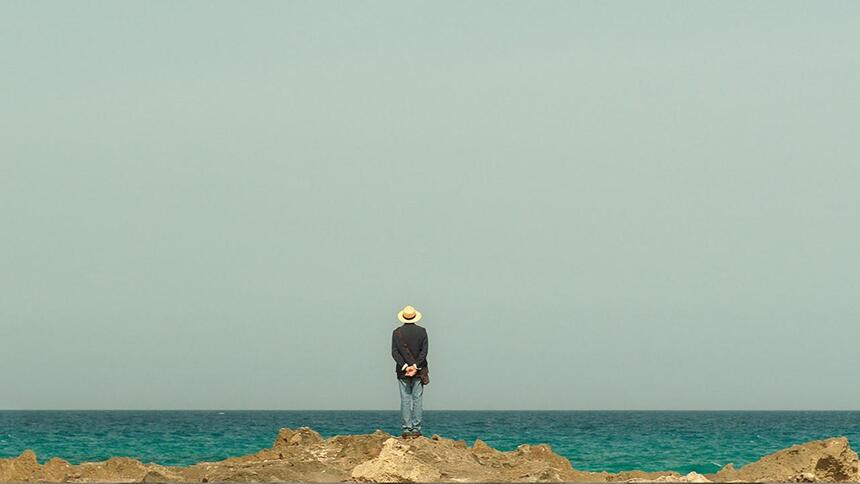
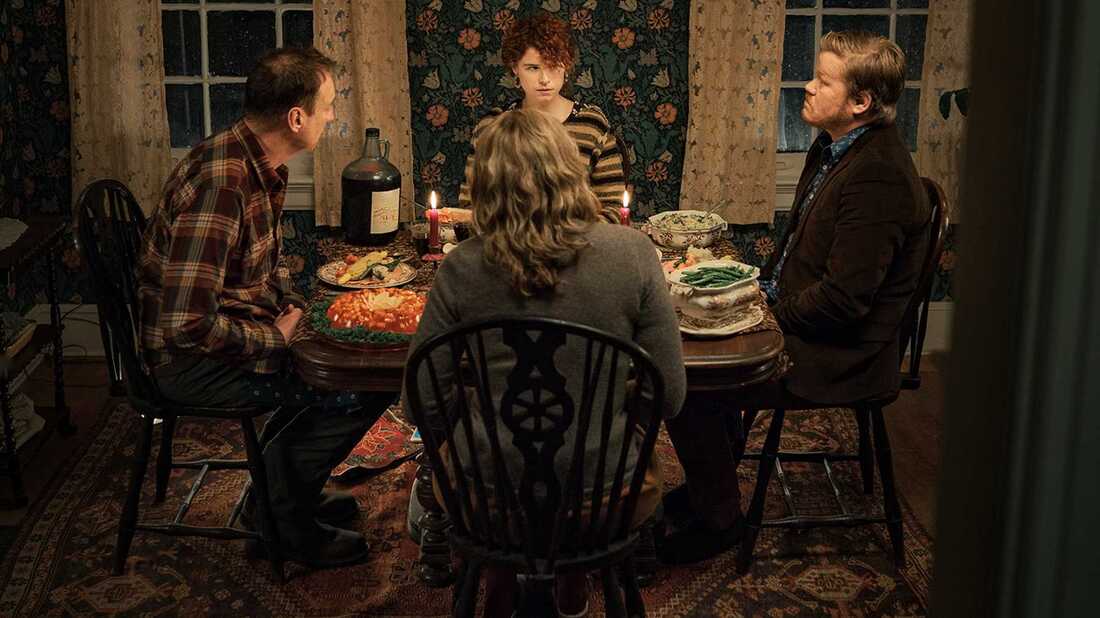
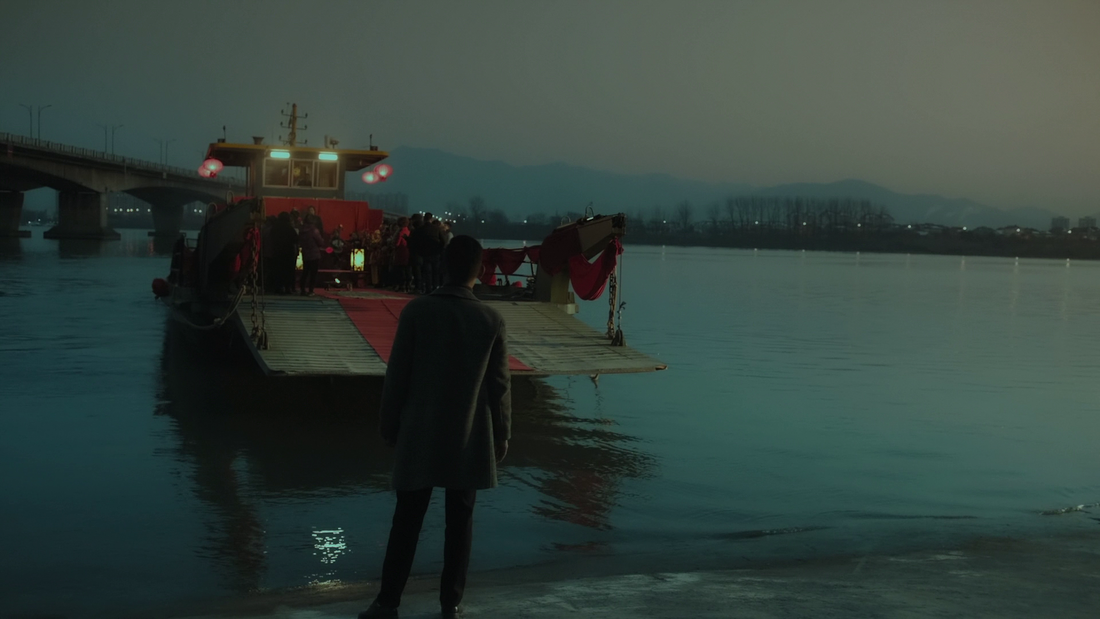
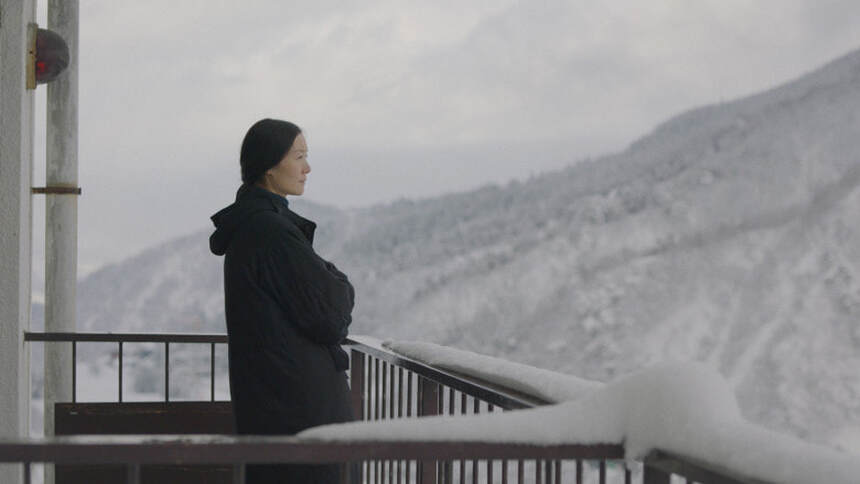
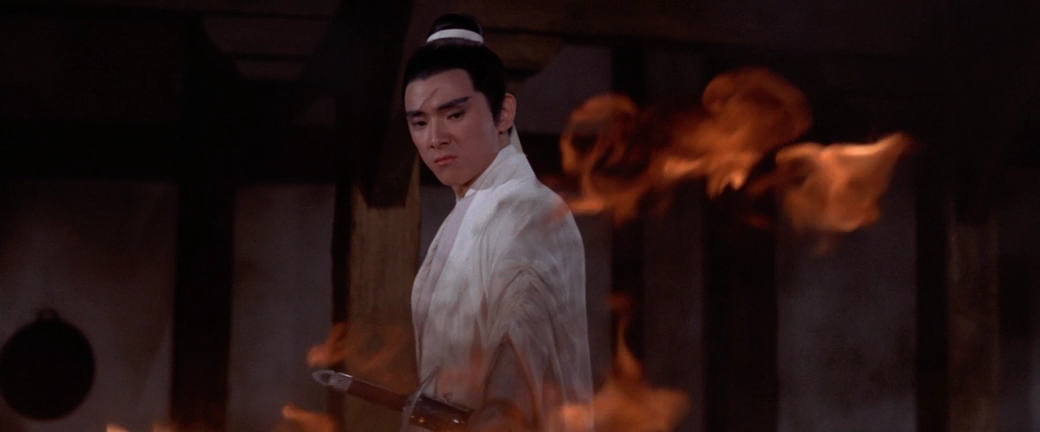
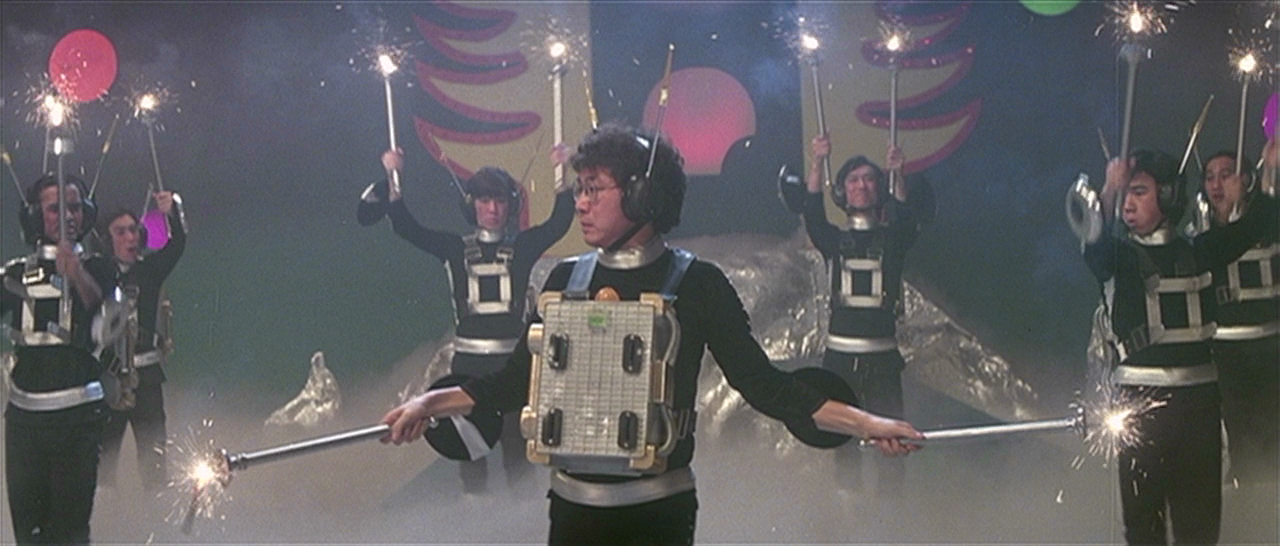

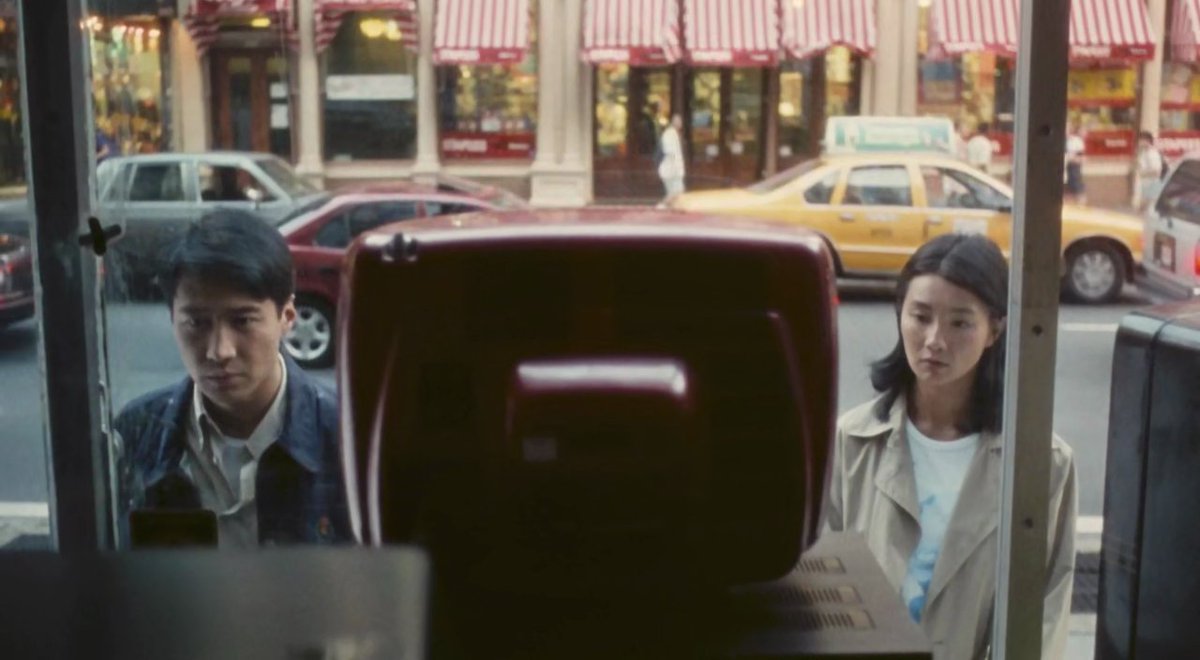
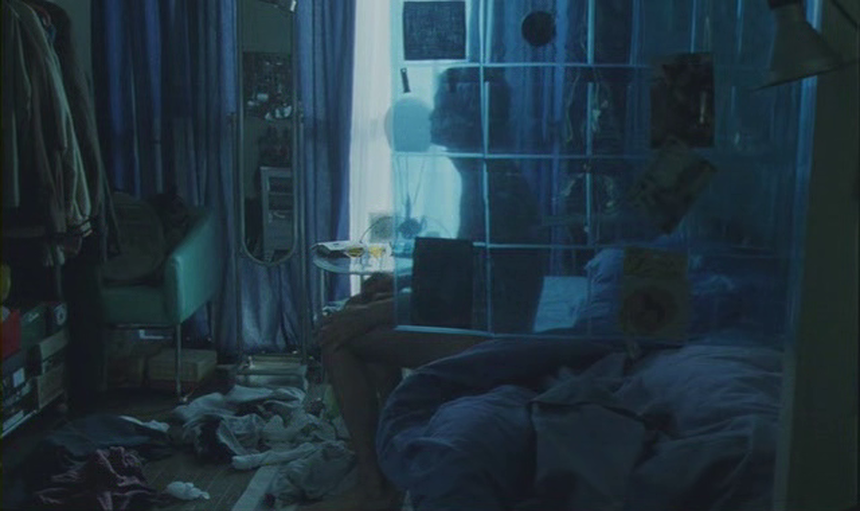
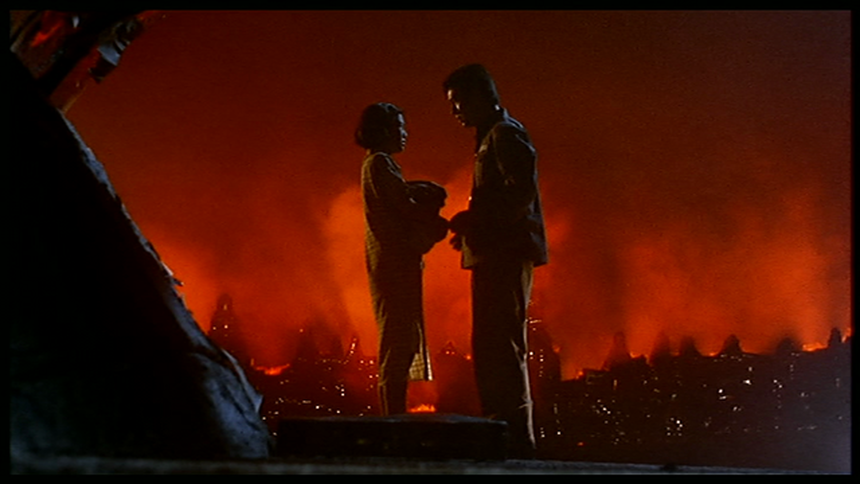
 RSS Feed
RSS Feed
